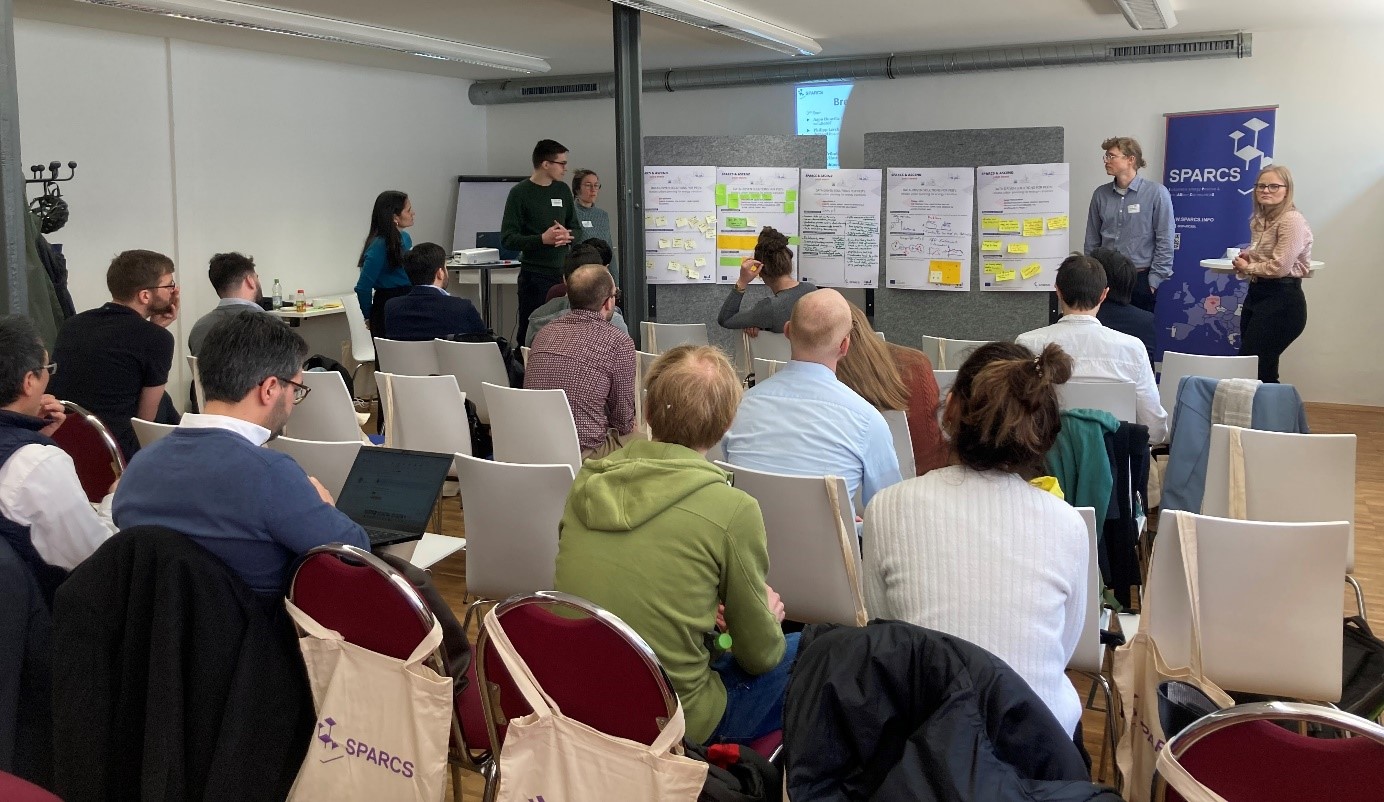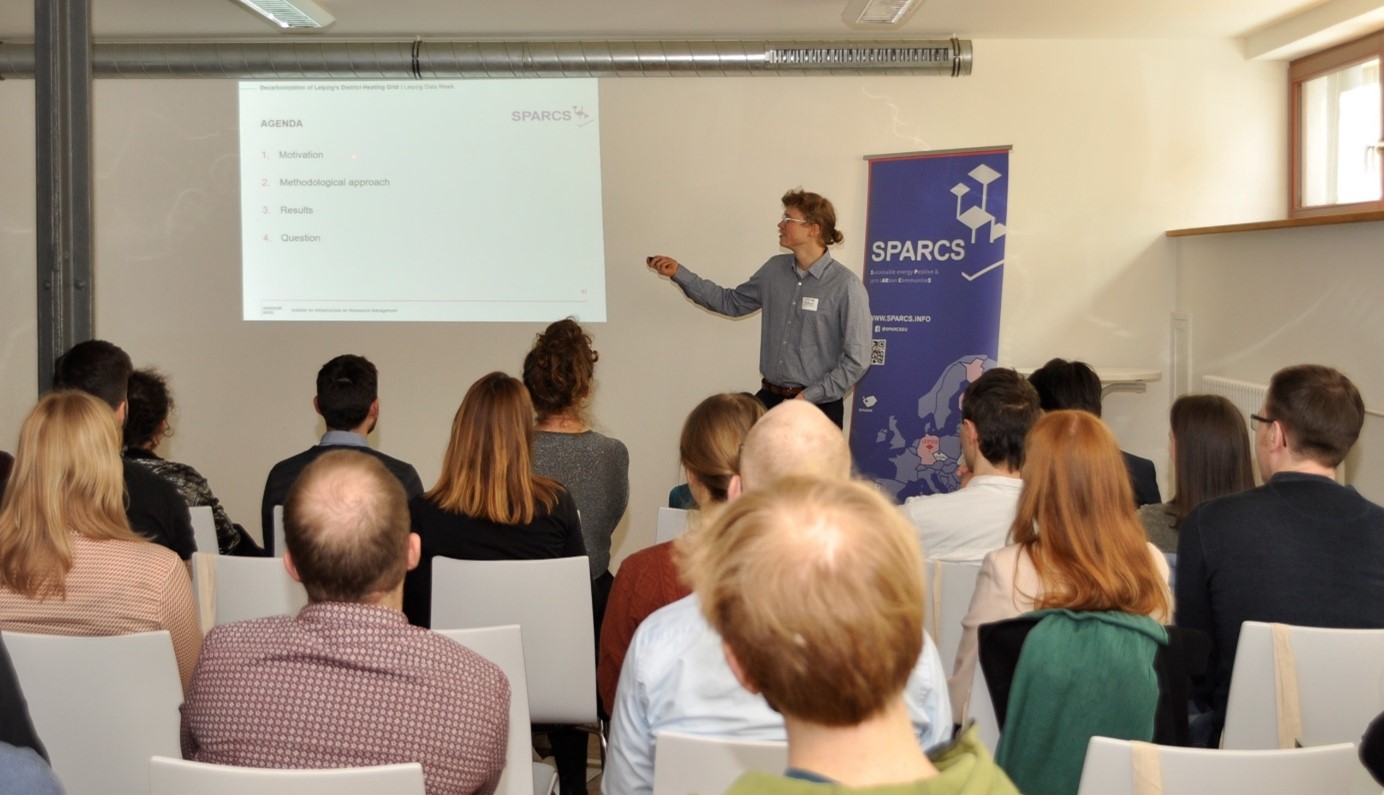SPARCS & ASCEND organize a joint Workshop: “Data-driven solutions for PEDs”
On 17 and 18 April, around 40 experts from various sectors, including local authorities, science and industry, travelled to Leipzig for a two-day Data Week 2024 side event at the invitation of the two EU projects SPARCS and ASCEND. In line with the SPARCS and ASCEND project objectives, the meeting focused on Data-driven solutions for the development of energy-positive neighbourhoods. The aim of the event was to provide participants with a platform to present their innovative solutions for the planning and implementation of positive energy districts (PEDs) and to discuss not only successful solutions but also challenges that arise during the development and implementation process.
Embedded in the programme of Data Week, which set new visitor records this year and was a big success, the event began on 17.04.2024 in the newly inaugurated Smart City Lab Leipzig. A brief tour of the new heart of the Digital City Unit was followed by a tour of the Kreuzstraßenviertel district, where Alexander Peitz from WSL (Wohnen & Service Leipzig GmbH) presented the successful model project for the energy-efficient refurbishment and modernisation of the prefab housing estate.
The following day was at the centre of the meeting and was dedicated entirely to exchanging ideas. The all-day workshop Data-driven solutions for PEDs took place on the premises of the Digital City Unit and in the Smart City Lab. The workshop, moderated by Laura Dieguez (DKSR) and Nadja Riedel (SPARCS), was based on the World Café method to promote informal dialogue and use collective intelligence and creativity to discuss possible solutions.
The content focus of the workshop was divided into two sessions: Holistic urban planning for energy transition and District and building level. In advance, some participants had agreed to present current projects in the form of a pitch, which opened the respective session. The participants then got together in small groups to discuss the topics in terms of their potential for cooperation and replication and opportunities for knowledge transfer in the breakout sessions. Afterwards, each session ended with a wrap-up, where everyone came together again to analyse the discussions. The sessions were characterised by lively discussions, getting to know the other people and projects and overall created a good basis from which to draw inspiration for future projects, recognise the potential of existing approaches and lay the foundations for future collaborations. In some cases, it was possible to spontaneously come up with solutions from one project for existing hurdles in another – implementation in the near future will show whether the joint brainstorming will be crowned with success.


